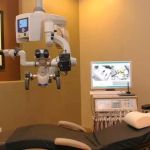
How to Prevent Tooth Decay During Pregnancy
Pregnancy is a time of change, and while expecting mothers focus on the health of their growing baby, it’s equally important to pay attention to oral health. Tooth decay can become more prevalent during pregnancy due to hormonal changes, dietary habits, and other factors. Fortunately, there are steps you can take to keep your teeth healthy and prevent tooth decay during this crucial period. In this article, we’ll explore effective strategies for maintaining good oral hygiene during pregnancy.
1. Understand How Pregnancy Affects Oral Health
Hormonal fluctuations during pregnancy, particularly an increase in progesterone and estrogen, can affect your oral health. These hormonal changes can lead to an increased risk of gum disease, dry mouth, and tooth decay. Pregnant women often experience morning sickness, which can expose teeth to stomach acids, further contributing to enamel erosion. Understanding these changes is key to protecting your teeth during pregnancy.
2. Maintain a Healthy Diet
A balanced diet is essential for both your health and your baby’s development. Eating foods rich in vitamins and minerals, such as calcium, vitamin D, and phosphorus, helps maintain strong teeth. Dairy products, leafy greens, and fish are excellent sources of these nutrients. However, it’s crucial to avoid sugary snacks and drinks, which can feed harmful bacteria in your mouth and increase the risk of cavities. Opt for healthy snacks like fresh fruit, nuts, and vegetables to satisfy cravings while supporting oral health.
3. Brush and Floss Regularly
Good oral hygiene practices are vital during pregnancy. Brush your teeth at least twice a day using fluoride toothpaste, and don’t forget to floss. Flossing helps remove food particles and plaque that your toothbrush may miss, especially between your teeth. If you experience morning sickness, it’s important to wait at least 30 minutes after vomiting before brushing your teeth. Brushing immediately after vomiting can spread acid and cause further enamel damage.
4. Stay Hydrated
Drinking plenty of water throughout the day is essential for staying hydrated and maintaining a healthy mouth. Saliva plays an important role in neutralizing acids in the mouth and washing away food particles. During pregnancy, dehydration can reduce saliva production, increasing the likelihood of dry mouth and tooth decay. Drinking water throughout the day can help combat these issues and promote better oral health.
5. Visit Your Dentist Regularly
It’s essential to keep up with regular dental checkups during pregnancy. Dentists can monitor your oral health, detect early signs of tooth decay, and provide professional cleanings to remove plaque and tartar buildup. Be sure to inform your dentist that you are pregnant so they can take the necessary precautions during treatment. In many cases, routine dental care is safe during pregnancy, and maintaining your visits can help prevent more serious issues down the road.
6. Avoid Harmful Dental Products
During pregnancy, it’s important to choose dental products that are safe for both you and your baby. Avoid mouthwashes with high alcohol content or harsh chemicals, as they may be too strong for pregnant women. Look for fluoride toothpaste and gentle mouthwashes that are alcohol-free and designed for sensitive mouths. Always consult your dentist if you have concerns about which products are best for your oral care during pregnancy.
7. Manage Morning Sickness and Acid Reflux
Morning sickness can make oral care more difficult, especially when stomach acids are involved. If you vomit frequently, the acids can erode tooth enamel. To reduce the impact of these acids, rinse your mouth with water after vomiting. You can also use a fluoride mouthwash or rinse with a baking soda solution to neutralize the acids. Avoid brushing your teeth immediately after vomiting to prevent spreading the acid over your teeth. Instead, rinse and wait at least 30 minutes before brushing.
8. Consider a Pregnancy-Specific Dental Care Plan
Every pregnancy is different, and it’s important to work with your dentist to develop a personalized oral care plan that addresses your specific needs. If you have special concerns, such as a history of gum disease or a family history of tooth decay, discuss these with your dentist to create a plan tailored to your situation. A proactive approach to dental care during pregnancy can help you avoid complications and maintain healthy teeth throughout the pregnancy.
9. Address Any Dental Problems Promptly
If you notice any signs of dental problems, such as bleeding gums, tooth pain, or sensitivity, seek dental care immediately. Pregnant women are more susceptible to gum disease (gingivitis) and other oral health issues, and untreated dental problems can worsen during pregnancy. By addressing these issues early, you can avoid more serious complications and ensure that your oral health remains in top condition.
10. Learn from Others: A Real-Life Story
Sarah, a first-time mom, learned the importance of dental care during pregnancy the hard way. During her second trimester, she developed severe gum disease and was at risk for early tooth decay. She hadn’t been visiting her dentist regularly and had been indulging in sugary snacks to satisfy her cravings. After visiting her dentist, Sarah was given a personalized treatment plan that included regular cleanings, a better diet, and improved brushing habits. By following her dentist’s advice, Sarah managed to avoid further complications and gave birth to a healthy baby with strong teeth!
Like Sarah, many expecting mothers overlook the importance of oral care during pregnancy. However, with the right knowledge and steps, you can protect your teeth and gums and ensure a healthy smile for years to come.







 Neighborhood Healthcare Eastside Health Center3.0 (80 review)
Neighborhood Healthcare Eastside Health Center3.0 (80 review) George D. Lim, DMD Inc.4.0 (136 review)
George D. Lim, DMD Inc.4.0 (136 review) Pinnacle Peak Family Dentistry4.0 (439 review)
Pinnacle Peak Family Dentistry4.0 (439 review) Niloo Tavakol Inc4.0 (7 review)
Niloo Tavakol Inc4.0 (7 review) Hacienda Micro-Endodontics0.0 (0 review)
Hacienda Micro-Endodontics0.0 (0 review) Dental Solutions of Northboro5.0 (36 review)
Dental Solutions of Northboro5.0 (36 review) The Importance of Oral Health Education During Pregnancy for a Healthy Pregnancy
The Importance of Oral Health Education During Pregnancy for a Healthy Pregnancy Best Tips for Brushing Your Teeth Properly for Healthy Gums: Essential Techniques for Oral Health
Best Tips for Brushing Your Teeth Properly for Healthy Gums: Essential Techniques for Oral Health Why Skipping Dental Checkups Can Lead to Bigger Oral Health Problems
Why Skipping Dental Checkups Can Lead to Bigger Oral Health Problems Advantages of Porcelain Dental Restorations
Advantages of Porcelain Dental Restorations How Can Diabetes Cause Tooth and Gum Problems? Preventing and Managing Oral Health Issues
How Can Diabetes Cause Tooth and Gum Problems? Preventing and Managing Oral Health Issues Healthy Habits for Promoting Good Oral Health and Hygiene: Tips for a Healthy Smile
Healthy Habits for Promoting Good Oral Health and Hygiene: Tips for a Healthy Smile